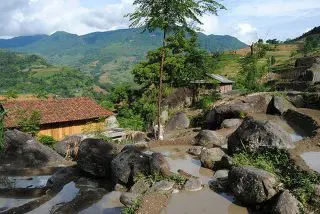
Xin Man, Ha Giang: What Makes This Region Special?
Xin Man district has a complex terrain, located in the upper Chay River mountain range, so it is mainly hills with steep slopes and divided by many streams.
Ma Pi Leng Pass, known as one of Vietnam’s “four great passes,” is located in the stunning Ha Giang province, nestled between the Dong Van and Meo Vac districts. This magnificent pass spans approximately 20 kilometers (12 miles) and is celebrated for its breathtaking views and challenging terrains, standing at a towering elevation of around 1,500 meters above sea level. Often referred to as the “king of Vietnamese mountain passes,” it is recognized for its dramatic cliffs and sheer drop-offs, alongside winding roads that cling to the mountainsides. This enchanting location offers motor-riding enthusiasts an exhilarating experience as they navigate its hairpin turns and steep inclines, making it a must-visit destination for adventure seekers and nature lovers alike.
The construction of Ma Pi Leng Pass began in the 1960s, taking around 11 years to complete. The project was primarily undertaken by local ethnic minority workers, showcasing the determination and resilience of the communities in this region. This vital route is part of national route 4C, commonly known as “the happiness road,” and serves as a critical link between the Dong Van Karst Plateau and Meo Vac District. Thus, Ma Pi Leng not only provides stunning natural beauty but also plays a significant role in the region’s transportation network and economic development.
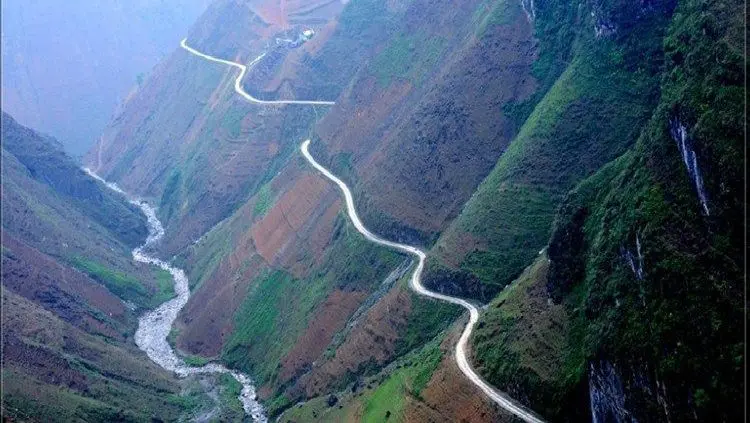
Ma Pi Leng Pass is more than just a stunning vista; it is steeped in rich cultural heritage. The pass is home to various ethnic minority groups, including the Hmong, Tay, and Dao peoples, who have inhabited the region for generations. Visitors to Ma Pi Leng can immerse themselves in the local culture by engaging with these vibrant communities. Participating in traditional activities such as local festivals, sampling traditional cuisine, and experiencing authentic customs can significantly enrich the travel experience.
Travelers should not miss the opportunity to savor some local delicacies while at Ma Pi Leng. Some traditional dishes worth trying include thang co (a hearty horse meat stew), men men (steamed corn flour), and colorful baked rice with five colors, each reflecting the unique culinary practices of the local ethnic groups. Dining on these traditional foods not only enhances your exploration but also contributes to the preservation of local culture, ensuring that these age-old recipes are passed down through generations.
Engaging with the local population can also provide insight into the rich history and traditions of the area. From sharing stories around a fire to witnessing traditional dances, the personal connections made in this remote part of Vietnam can leave a lasting impression on any traveler. The warmth and hospitality of the local communities offer a personal touch that often remains unmatched in more tourist-oriented locations.
The best time to visit Ma Pi Leng Pass is during the dry season, which runs from October to April. During this period, weather conditions are usually more stable, making it ideal for outdoor activities. Travelers can expect cooler temperatures, clearer skies, and unobstructed views of the rugged landscape that characterizes Ha Giang province. The scenery during peak season, particularly from October to November, is heightened by the vibrant colors of rice harvest, along with numerous local festivals that add to the region’s allure.
In addition to its remarkable views, the dry season enables travelers to fully appreciate the rich biodiversity and unique geological formations characteristic of the Dong Van Karst Plateau. Photographers will find the combination of vivid colors and dramatic landscapes to be a once-in-a-lifetime opportunity to capture stunning imagery. From mist-covered peaks at sunrise to spectacular sunsets that bathe the valley in golden light, every moment in Ma Pi Leng is a chance to witness nature’s beauty in full display.
Moreover, numerous local festivities take place during this period, showcasing the traditions and practices of the ethnic communities. Engaging in these celebrations not only offers a glimpse into the lives of local people but also brings visitors closer to the heart of Vietnamese culture. Whether it’s participating in a harvest festival or enjoying traditional music, the experiences during this time enrich any visit.
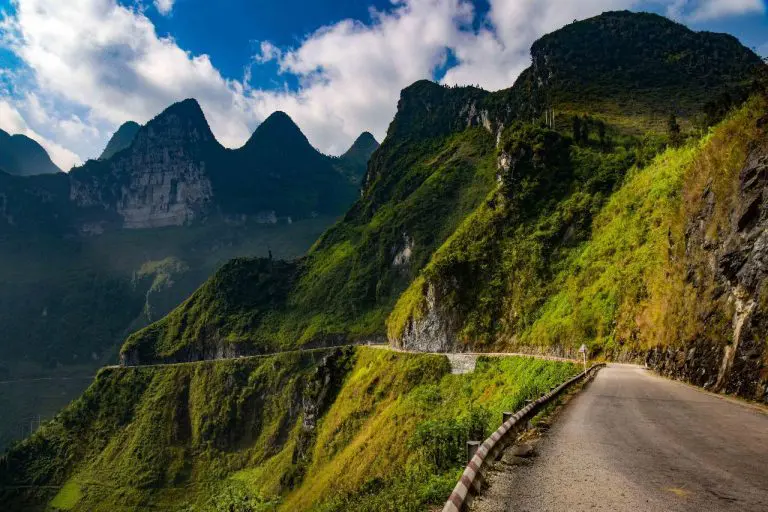
Visitors to Ma Pi Leng Pass will find a wealth of attractions nearby that enhance the overall experience. Here is a list of some must-see spots:
Each of these attractions contributes to a comprehensive journey through Ha Giang’s rich cultural landscape, providing awareness of the area’s natural beauty and historical significance.
Traveling to Ma Pi Leng Pass can typically be done by bus, motorbike, or private car from Hanoi, which takes about 6 to 8 hours to reach Ha Giang City. From there, the pass can be accessed with relative ease. It’s advisable for travelers to prepare physically for the adventurous yet promising journey along scenic but challenging roads. The winding routes can be demanding, especially for those unaccustomed to mountainous terrain; hence, ensuring you are in good health will enhance your experience.
Before embarking on your adventure, checking the weather conditions is crucial due to the region’s susceptibility to sudden changes in climate. Having the right gear and equipment can make all the difference in navigating the pass safely. Additionally, be sure to carry refreshments as few stops along the way may offer food or water, particularly as you navigate through more remote areas.
For motorbike enthusiasts, renting a motorcycle adds another layer of excitement to the adventure. The thrill of carving through the paths with the wind in your hair cannot be understated. Riding through Ma Pi Leng allows for a connection with the landscape that enriches your understanding of the region’s natural beauty and cultural fabric.
In summary, Ma Pi Leng Pass offers more than just breathtaking views it presents a complete adventure packed with natural wonders and rich cultural experiences that encapsulate the essence of northern Vietnam. Whether you’re exploring the magnificent landscape, engaging with local ethnic communities, or indulging in traditional culinary delights, the memories made here are invaluable. The journey through Ma Pi Leng not only showcases the enchanting beauty of Vietnam’s mountains but also highlights the enduring spirit of the people who call this region home.
For travelers seeking both adventure and cultural enrichment, Ma Pi Leng Pass is truly a destination that should not be missed. Whether it’s the road less traveled or the stories shared with locals, the experiences here leave lasting impressions that resonate long after the journey ends.

Xin Man district has a complex terrain, located in the upper Chay River mountain range, so it is mainly hills with steep slopes and divided by many streams.
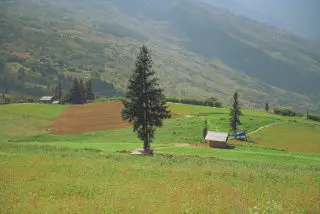
Venture into the untamed beauty of northern Vietnam with Vietnam Treasure and discover the magic of Suoi Thau Steppe. This captivating landscape offers a unique blend of cultural immersion and breathtaking natural scenery far from the bustling tourist trails.
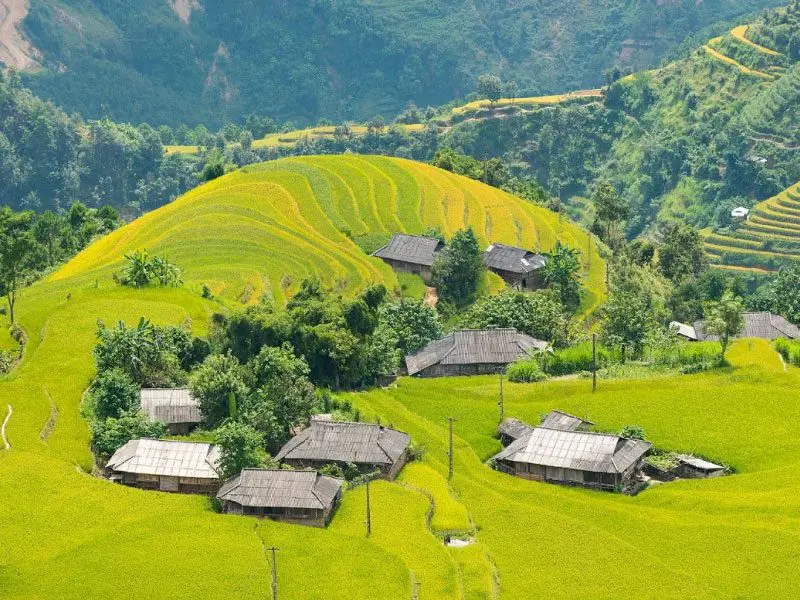
Nestled high in the mountainous region of Ha Giang, Phung Village (Ban Phung) is a hidden gem offering a glimpse into the authentic beauty and culture of Northern Vietnam.
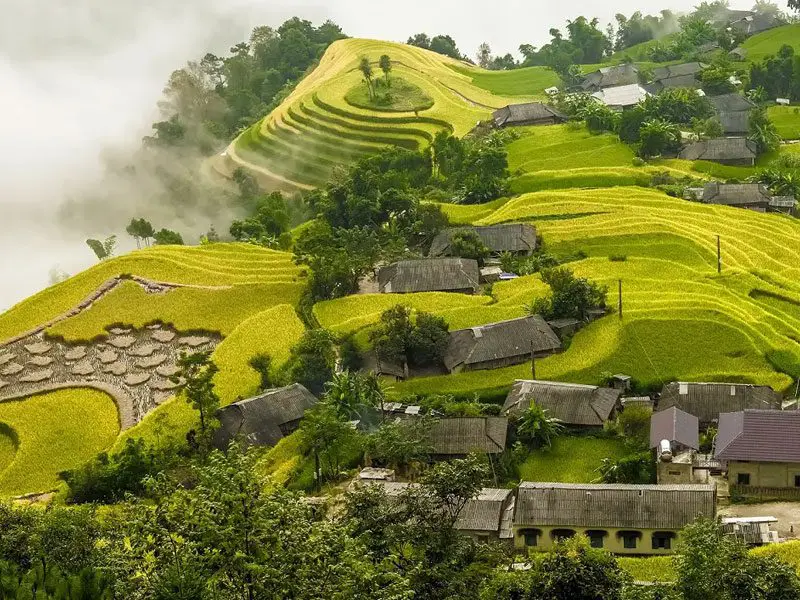
Stop at Thong Nguyen Village, and you will discover amazing beauty. This is a rugged and difficult mountainous area. Many people may think that nothing is interesting here. Join Vietnam Treasure to discover the beauty of Thong Nguyen Village.
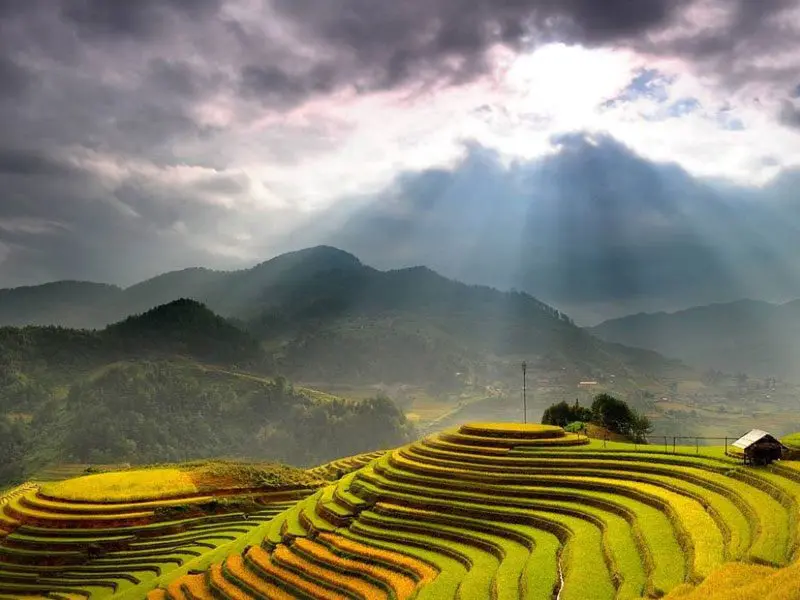
Its name, Hoàng Su Phì or Hoàng Thụ Bì, means “the yellow bark” in the Hmong language. It indicates the woods of weeping cypress, which is a local specialty.
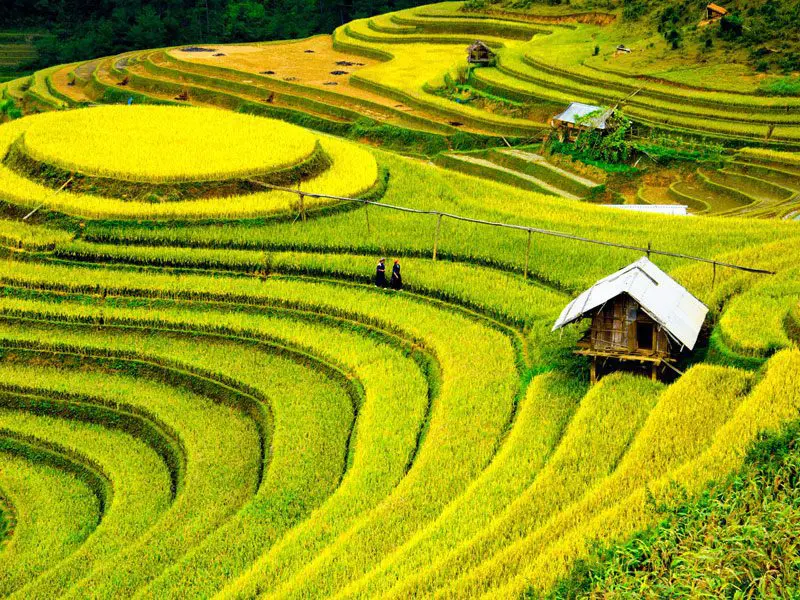
Hoang Su Phi terraced fields possess an undeniable charm, creating a mesmerizing scene—journey to Ha Giang with Vietnam Treasure to witness the brilliant golden rice harvest season. Although present in many countries, especially in Southeast Asia, terraced fields in Vietnam are deeply associated with the traditional agricultural activities of many ethnic groups in the northern mountainous region, such as the H’Mong, Dao, Nung, La Chi and Ha Nhi.
Tu San Canyon (Mèo Vạc district), the deepest canyon in Vietnam. It has a depth of about 800 m, a length of 1.7 km, and cliffs that slope 70° to 90°.
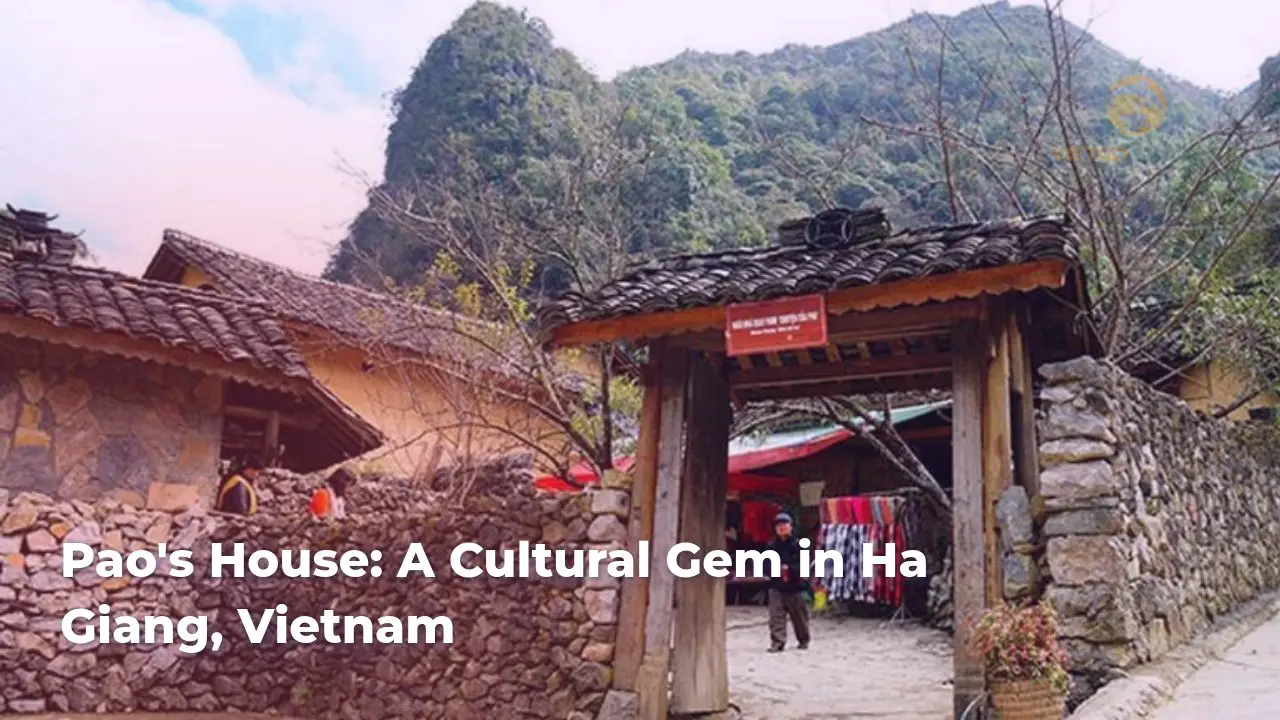
Discover the charm of Pao’s House, Ha Giang. Dive into local culture and scenic beauty. Plan your adventure now!
Copyrights @2025 Vietgo Travels. Terms and Conditions Privacy Policy
Hotline
+84 855 452 888 (Viet Nam) / +1 (206) 665 3090 (US)
Email: [email protected]
Website: www.vietgotravels.com
Head Office:
No. 23 Lo Su Street, Hoan Kiem District, Ha Noi, Viet Nam.
Viet Nam’s branch:
No. 35 Hang Quat Street, Hoan Kiem District,
Ha Noi, Viet Nam.
US:
831 41st Pl, Everett, WA 98201, USA